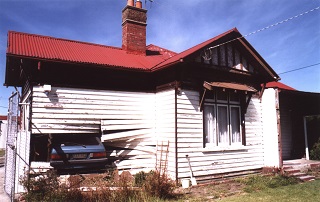
I Hit My House With My Car. Who Pays?
We all might miscalculate our turning radius or forget to look behind us when reversing. So, if you’ve mistakenly backed your car into your house, you might wonder how your insurance will help you out. When it comes to household damage, then your homeowners insurance will often apply. Always check your policy to determine exactly how your plan will help you out, however.
homeowners insurance will often apply. Always check your policy to determine exactly how your plan will help you out, however.
Fault in Collisions with Buildings
One day, while you are running late for work, you start to back out of the driveway. However, the car swerves and you wind up backing into a pair of French doors. That’s a bad way to start your morning. But, the right insurance coverage can help you cover the costs of the damage.
The unfortunate part of building collisions is that they are often the driver’s fault. Unlike times when you hit another vehicle, there is likely no dispute over who caused the problem. After all, your house could not cause the collision. Therefore, you will have to pay for the damage using your own insurance.
Your car insurance will often cover vehicle repairs if you have collision insurance. However, auto policies won’t pay for your property damage. In this case, you might have to turn to your home insurance.
Homeowners Insurance for Car Wreck Damage
Though you caused the wreck that damaged your house, your homeowners policy will likely pay for the damage. You will have to file this damage claim separately from your claim on your car insurance.
- Policies usually include structure coverage for the portions of the house that get damaged. Structure insurance can help you pay for the necessary repairs.
- If your policy has detached structure coverage, then it will cover damage done to other buildings. So, if you accidentally back into a storage shed or carport, then your policy can pay for repairs to that item.
- Should the collision damage belongings in the house, then your possessions insurance can cover those costs. Some policies might only pay the item’s cash value at the time of the accident, however.
Remember, terms and conditions will apply on your homeowners policy. It will likely include deductibles, for instance. If you have a $1,000 structure deductible, and your house sustains $2,500 in damage, then your policy will only pay up to $1,500. Damage that costs less than the cost of the deductible will not have coverage.
Though you might have to file against both your homeowners and auto insurance when you back into your home, it can prove beneficial. Give your agent a call to make sure your policies includes the appropriate coverage for such losses.
Also Read: When Does Your Home Insurance Cover Mold?
Categories: Blog
Tags: home insurance
